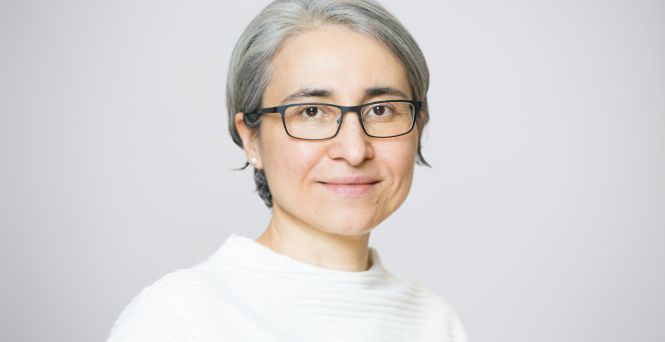URL: https://v1.desy.de/site_www-desy/content/about_desy/lead_scientists/cigdem_issever/aufgabenuebersichtsplan_v1_20220131_eng.html/@@siteview
Breadcrumb Navigation

Cigdem Issever
ATLAS experiment at the LHC
Cigdem Issever is Lead Scientist at DESY, Professor at Humboldt University of Berlin and Visiting Professor at the University of Oxford, UK. She is head of the Particle Physics Group at DESY in Zeuthen and of the Experimental High-Energy Physics Group at Humboldt University of Berlin.
Her research at DESY focuses on searches for dark matter signatures in collision events at the Large Hadron Collider (LHC) that contain Higgs bosons decaying into a pair of b-quarks. She is also preparing Higgs property measurements using the same final states. Furthermore, she is interested in measurements to understand the non-collision backgrounds in the ATLAS experiment as well as in ATLAS measurements to improve our understanding of cosmic-ray-induced air showers in the Earth’s atmosphere.
Cigdem Issever is an expert in the reconstruction and calibration of jets, i.e. particle showers initiated by quarks or gluons in the detector. Her research focuses on the identification of Higgs bosons that decay into b-jets. She is working to improve the experimental techniques used to reconstruct these objects, for example by applying machine learning techniques to improve jet reconstruction and b-quark identification.
Her interest in jets began as a diploma student at DESY when she was tasked with developing a compensation algorithm for the calorimeter of the H1 experiment to improve jet energy reconstruction. This algorithm is one of those used today in the ATLAS experiment for jet energy reconstruction. After her PhD, she became a member of the CDF experiment at Fermilab in the USA before joining the ATLAS experiment and starting as a Departmental Lecturer at the University of Oxford. Her research shifted from measurements to searches for new physics at the LHC in jet final states: e.g. microscopic black holes, extra dimensions and new heavy particles.
She is also interested in using quantum technologies to improve particle identification in high-energy physics experiments as well as in designing new non-collider-based experiments to search for new physics beyond the Standard Model of particle physics.
Beyond her research, Cigdem Issever is passionate about outreach and communicating her science to a wider audience. In collaboration with schools and particle physics colleagues, she founded the ATLAScraft project, which allows users to explore CERN, the LHC and the ATLAS experiment in the online game Minecraft.
Academic career
| since 2019 |
ATLAS experiment, CERN
Lead Scientist at DESY, Head of the Particle Physics Group at DESY in Zeuthen
University Professor at Humboldt University of Berlin, Head of the Experimental High-Energy Physics Group
Helmholtz Distinguished Professorship
Visiting Professor at University of Oxford, UK
|
| 2015-2019 | Tutorial Fellow in Physics, Lincoln College, Oxford |
| 2014-2019 | Professor of Particle Physics, University of Oxford |
| 2008-2014 | University Research Lecturer, University of Oxford |
| 2004-2008 | Departmental Lecturer, University of Oxford |
| 2001-2004 |
CDF experiment, Fermilab, USA
Postdoctoral Researcher, University of California Santa Barbara, USA
|
| 1996-2001 |
Doctorate in Natural Science, University of Dortmund
|
| 1994-2001 |
H1 experiment, DESY
Graduate and Diploma Student, University of Dortmund
|
Memberships
Institute of Physics (IOP)


